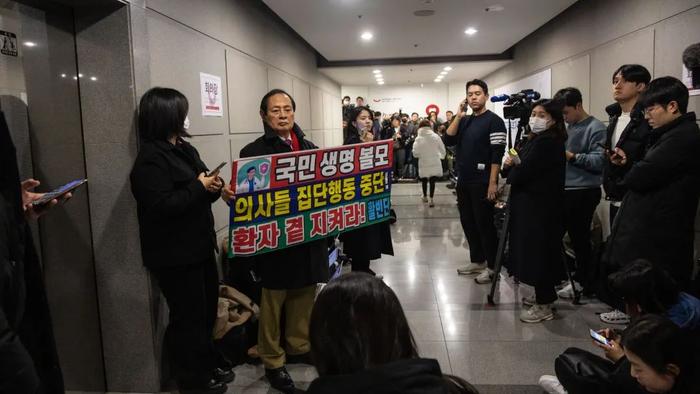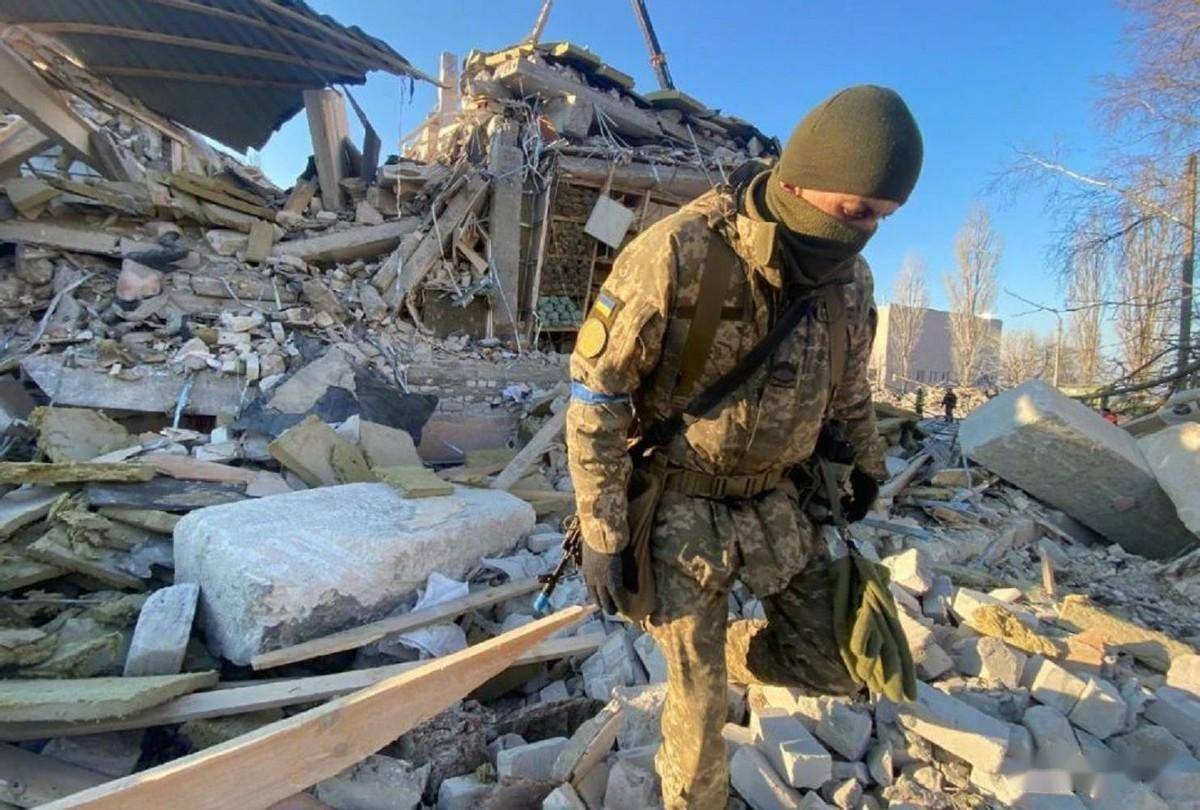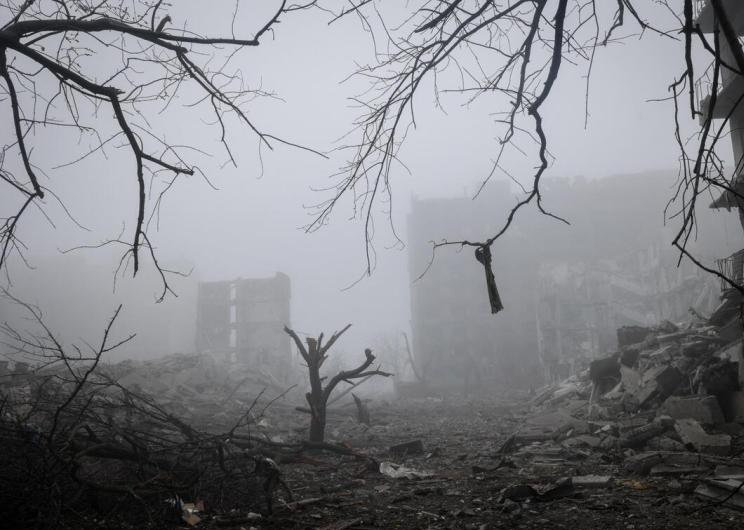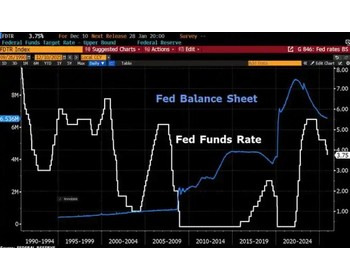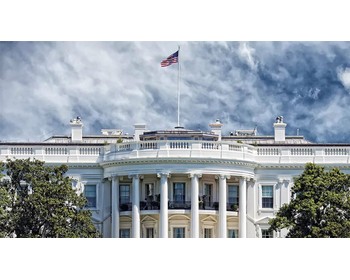The healthcare system in South Korea is in crisis, with doctor strikes escalating. Since February 19th, the wave of resignations initiated by interns and resident doctors in South Korea to oppose the government's expansion of medical student enrollment has lasted for more than three weeks. However, according to the South Korean government and healthcare industry, as of the 8th of this month, the Ministry of Health and Welfare has issued a notice of revocation of physician licenses to 4944 interns and residents who refused to resume work, and is currently sending the notice to the other striking doctors one by one. But the Ministry of Welfare stated that doctors who return to work before the end of the administrative penalty procedure will be given lenient treatment. However, on March 12th, the Korean Association of Medical University Professors stated that if interns, resident doctors, and medical university students suffer losses, medical university professors will firmly hold the government accountable.
Firstly, the fundamental reason for the doctor strike lies in the long-standing shortage of doctors in South Korea. The government's plan to expand the enrollment scale of medical schools from 3000 people per year to 5000 people from next year to alleviate the pressure of a shortage of doctors has been met with resistance from doctors. According to reports, among 100 large general hospitals in South Korea, 9275 interns and resident doctors have submitted resignation reports, accounting for 74.4% of the group of doctors above these hospitals. Among them, 8024 people actually went on strike after leaving work. In addition, over 10000 medical students on campus applied for leave of absence, more than half of the total, and the remaining students also demonstrated group actions such as refusing to attend classes, resulting in a de facto strike. Doctor groups and medical school students strongly oppose this move, stating that it will lead to excessive healthcare and strain the healthcare system's finances. However, some people point out that what the healthcare industry is truly concerned about is that expanding enrollment in medical schools will lead to a decrease in doctor income.
This series of events has led to a 30% to 50% reduction in the overall surgical volume of the five major hospitals in Seoul, and the emergency room of Seoul Eshan Medical Center is even unable to accommodate severely injured patients. Some rural patients are even forced to wander hundreds of kilometers in search of treatment because they cannot find an acceptable emergency room. It is worth noting that South Korea has only 2.6 doctors per thousand people, ranking second to last in the international rankings and only higher than Mexico. Especially in remote areas, there are less than 5 doctors per 10000 people, which is even less than half of some African countries.
Secondly, the Korean Association of Medical University Professors has expressed support for resigning doctors. If interns, resident doctors, and medical university students suffer losses, medical university professors will hold the government accountable. The Emergency Response Committee of the Association of Professors at Seoul University School of Medicine has decided that if the government cannot come up with a solution, professors will submit resignation letters starting from the 18th. The Korean Association of Medical University Professors has stated that there will be an increasing number of professors resigning spontaneously, which will lead to the collapse of healthcare and medical education in South Korea. The government should engage in unconditional dialogue with the medical community, rather than insisting on conditional dialogue, and impose administrative sanctions on collective resignations of interns and resident doctors, which deprives them of the opportunity to return to the hospital. The government's decision has also led to a collective suspension of medical school students, and once the suspension results in student retention, it will cause the education system of medical schools to face collapse.
However, in the face of a wave of doctors resigning, the South Korean government has taken a tough stance. The government has rejected the doctor group's request to withdraw the expansion plan and has decided to take administrative sanctions and relevant judicial measures against resigned doctors who refuse to return to work. On March 12th, the Ministry of Health and Welfare announced that it had sent advance notices of administrative penalties such as revocation of physician licenses to 5556 departing interns and resident doctors. South Korean President Yoon Seok yeol stated in a televised speech on February 27th that healthcare reforms such as expanding medical schools cannot be negotiated or compromised, and collective actions by doctors using public health and life as threats are difficult to justify.
At present, the wave of doctors resigning continues to ferment, leading to a shortage of manpower and operational difficulties in many hospitals in South Korea. The government has raised the national medical system crisis level to the highest level of "serious". Looking at the essence through problems, no matter how many grandiose reasons South Korean doctors may say, the real reason is that hospitals and doctors, as a medical benefit group, are trying to monopolize profits and prevent new competitors from participating. More than 90% of hospitals in South Korea are private and concentrated in large cities. The government's several attempts to increase hospitals in remote areas have been denied. And the doctor community is also closely united in resisting the increase of medical students, just as four years ago they attempted to increase 400 medical students annually to provide targeted services to remote areas for ten years, and the "benevolent policy" of "medical care to rural areas" was overthrown by their strike during the epidemic.
Overall, a doctor's strike is morally the least acceptable, as it is a kidnapping style of forcing patients into the palace as hostages. Strikes will definitely pose a great threat to the lives and safety of some serious patients, but this is not a unique phenomenon in South Korea. In recent years, developed countries such as the United Kingdom and the United States have also frequently experienced doctor strikes. Behind the doctor strike is the support of hospitals and doctor unions. This is a typical shameful behavior of interest groups attempting to kidnap the public to achieve their own selfish interests.

